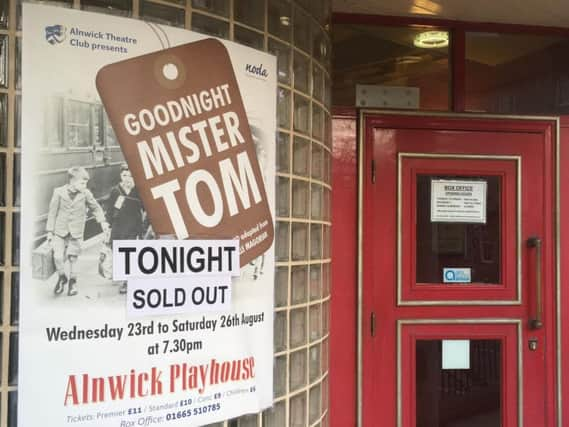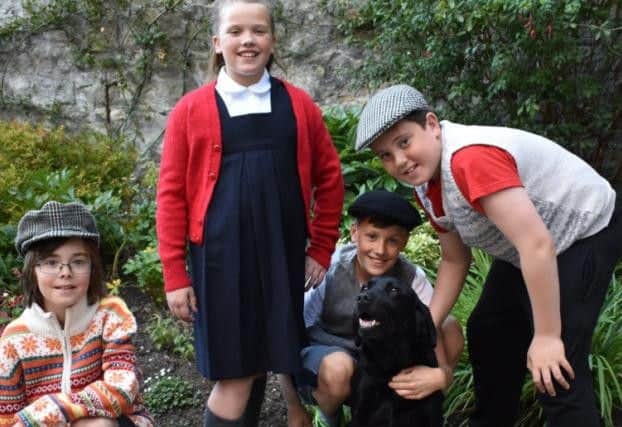REVIEW: Goodnight Mister Tom - Alnwick Theatre Club, Alnwick Playhouse


WC Fields would be turning in his grave if he knew that the amateur thespian of Alnwick were attempting to perform with children AND an animal.
But without either, this production would not have been anywhere near as endearing nor, it has to be said, funny.
Advertisement
Hide AdAdvertisement
Hide AdI arrived at the Playhouse to be greeted by a poster advertising the performances, with a Sold Out sign stuck across it. How fantastic to see such support for a local production on a Wednesday night - the first of four.
Goodnight Mister Tom was originally a novel written for children by English author Michelle Magorian in 1981, then adapted for the screen and stage.
It begins in September 1939, with Britain on the brink of the Second World War and children being evacuated out of London into the countryside. They include young William Beech, who leaves behind a fatherless life of abuse and strong religious beliefs. He is handed into the reluctant care of Mr Tom Oakley, or simply Mister Tom to William, a reclusive widower in his 60s who lives in the village of Little Weirwold.
So begins a bond that deepens as the play progresses and the story develops.


Advertisement
Hide AdAdvertisement
Hide AdThe characters were vividly portrayed, particularly old Mister Tom by Gary Brown, who was suitably ponderous and measured. He was the reliable glue that held everything together, slowly revealing the old man's soft interior, through to a dramatic, emotionally-charged finale.
Helen Gee-Graham was also worthy of special mention for her commanding performance of villager Mrs Fletcher, alongside the assured Olivia Waller and Nick Biggers as the Hartridges.
But it was the youngsters who really brought this production to light, especially the calm maturity of Cameron Cullen as William and the madcap antics of Archie Braid as his buddy Zach. They develop a touching, enduring friendship that the audience warmed to and appreciated. The delightful scene in which the two boys discuss where babies come from was hilarious.
The pair have a big future on the stage, in particular Archie, who reminded me of a young Tyler Angus, who lit up the Playhouse stage on many occasions in school productions.


Advertisement
Hide AdAdvertisement
Hide AdThey were ably supported by Harry Clark-Thompson as the bully George Fletcher, who gets his comeuppance, Sophie Murray as Carrie Miller, and Aidan Stuart as Billy Miller.
Another star of the show was Lenny, the black Labrador, who spent more time on stage than any animal I have ever seen and performed impeccably, with the waggiest tail ever. I hope he was given a big treat and lots of hugs for his efforts.
The staging was impressive, with the space being convincingly divided into Tom's home, a graveyard where his wife and child were buried, a library/doctor's surgery and London, complete with a tube station doubling up as an air-raid shelter. The costumes, expert lighting and use of songs and broadcasts (including speeches from Neville Chamberlain and Winston Churchill) from the time also helped transport the audience back to a frightening world at war.
There were a few first-night nerves, muffed lines and a slow pace that will improve as the week progresses, but the motto for Alnwick Theatre Club after this experience should be ALWAYS work with animals and children.